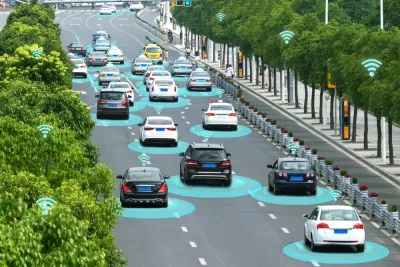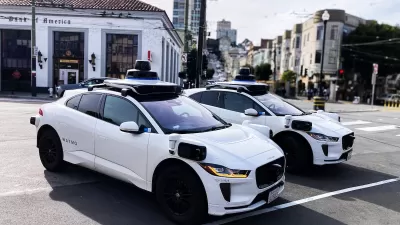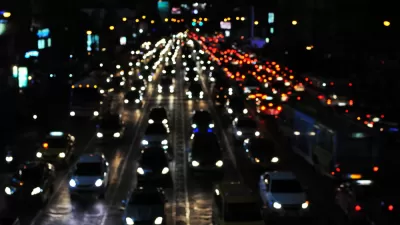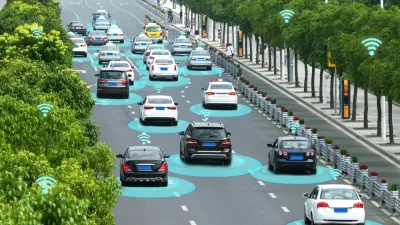How we pay for our roads will play a big role in what happens to cities when autonomous vehicles become common place in cities.

The advent of the car changed cities forever. The Economist now posits planners have a chance to change cities again with the advent of autonomous vehicles. "Urban freeways, commuter suburbs and mandatory parking requirements reshaped cities. Now AVs promise to transform them once again, undermining many car-centric assumptions made in the 20th century, opening up new possibilities and turning urban-planning debates upside down," according to an article in The Economist. But in some ways the arguments are the same. If drivers don't pay directly for the roads, autonomous cars could further spread out our cities.
"A switch to shared robotaxis could increase vehicle occupancy rates, reducing the number of vehicles needed to move people around and easing congestion," according to the article. On the other hand, it posits the potential issue of induced demand that might be created when people see the opportunity presented by newly open roads, something the author calls a "nightmare scenario."
The author suggests that the technology offers an opportunity for a more subtle form of pricing of roads "… taking account of time, place, vehicle type, number of riders, traffic levels and so forth, to maximise sharing and minimise congestion."
The piece takes a guardedly techno-optimistic view of the future, "…In retrospect, many drawbacks associated with cars in the 20th century arose from a failure to price their use properly. With appropriate pricing, AVs should be able to avoid many of those problems, giving urban planners and policymakers a much wider range of choices about how cities and transport systems could be structured." It remains to be seen whether future generations will be able to price their roads in more equitable ways than we did.
FULL STORY: A chance to transform urban planning

Planetizen Federal Action Tracker
A weekly monitor of how Trump’s orders and actions are impacting planners and planning in America.

Chicago’s Ghost Rails
Just beneath the surface of the modern city lie the remnants of its expansive early 20th-century streetcar system.

San Antonio and Austin are Fusing Into one Massive Megaregion
The region spanning the two central Texas cities is growing fast, posing challenges for local infrastructure and water supplies.

Since Zion's Shuttles Went Electric “The Smog is Gone”
Visitors to Zion National Park can enjoy the canyon via the nation’s first fully electric park shuttle system.

Trump Distributing DOT Safety Funds at 1/10 Rate of Biden
Funds for Safe Streets and other transportation safety and equity programs are being held up by administrative reviews and conflicts with the Trump administration’s priorities.

German Cities Subsidize Taxis for Women Amid Wave of Violence
Free or low-cost taxi rides can help women navigate cities more safely, but critics say the programs don't address the root causes of violence against women.
Urban Design for Planners 1: Software Tools
This six-course series explores essential urban design concepts using open source software and equips planners with the tools they need to participate fully in the urban design process.
Planning for Universal Design
Learn the tools for implementing Universal Design in planning regulations.
planning NEXT
Appalachian Highlands Housing Partners
Mpact (founded as Rail~Volution)
City of Camden Redevelopment Agency
City of Astoria
City of Portland
City of Laramie





























